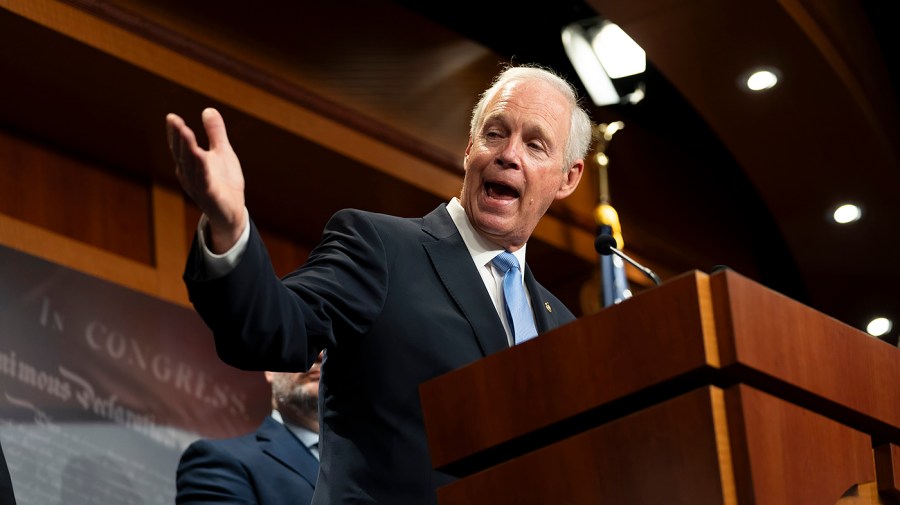
Sen. Ron Johnson (R-Wis.) doubled down on a conservative plan to reduce government spending with new proposals outlined in an op-ed published by the Wall Street Journal.
“Federal spending is out of control,” Johnson began in the Wednesday commentary, urging his colleagues on Capitol Hill to revert back to pre-COVID-19 pandemic spending that is “adjusted for population growth and inflation.”
“In fiscal 2019, which ran from Oct. 1, 2018, to Sept. 30, 2019, federal outlays totaled $4.447 trillion. In fiscal 2020, federal outlays jumped to $6.554 trillion because of the pandemic spending spree,” he added. “Businesses closed, cities locked down and unemployment soared.”
In the piece, the Wisconsin Republican detailed his frustrations with high-level spending sparked by the pandemic.
“In a sane world, Covid spending levels would have been an extreme aberration, and we would have already returned to a more reasonable level of spending,” Johnson wrote before proposing inflationary budget caps.
Johnson also took a swipe at the Payment Protection Program (PPP), a $961 million program established as part of the 2020 Coronavirus Aid, Relief, and Economic Security Act, or CARES Act. The initiative, designed to help small businesses stay afloat, was also targeted for fraudulent loan payments.
Fraudsters across multiple states were able to obtain PPP loans worth millions of dollars by misrepresenting the number of employees they had or even the very existence of their businesses. The program ended in late May 2021.
The GOP senator argued that the loans weren’t awarded based on financial need and were “simply forgiven.”
“The exact amount of waste, fraud, and abuse of Covid relief spending will never be known —we’re seeing only the tip of the iceberg,” Johnson wrote. “Instead of targeting relief with laser precision, we used a shotgun and fired money out the door as fast as the federal government could print it.”
“The result was 40-year high inflation,” he added.
In response, he pushed for an increase in spending to account for population growth and then inflating those numbers by the change in the consumer price index using fiscal 1998 as a base.
“Dollars you held in 1998, 2014 and 2019 are now worth only 51, 74 and 80 cents, respectively,” he continued. “I don’t believe we spent too little in any of those years.”
“Big spenders in Washington should explain why they’ve allowed this devaluation to occur, and why setting baseline spending to one of those budget years isn’t only reasonable but doable,” the senator concluded.
His comments come ahead of President-elect Trump’s return to the White House. Trump tapped billionaires Elon Musk and Vivek Ramaswamy — his former GOP primary rival — to lead a new advisory group to combat government spending called the Department of Government Efficiency (DOGE).
Their approach to “wasteful” federal spending has already made an impact on the House, after they helped to tank two stopgap bills last month ahead of a government shutdown deadline. A third package was ultimately passed and President Biden signed it, averting a lapse in funding.












